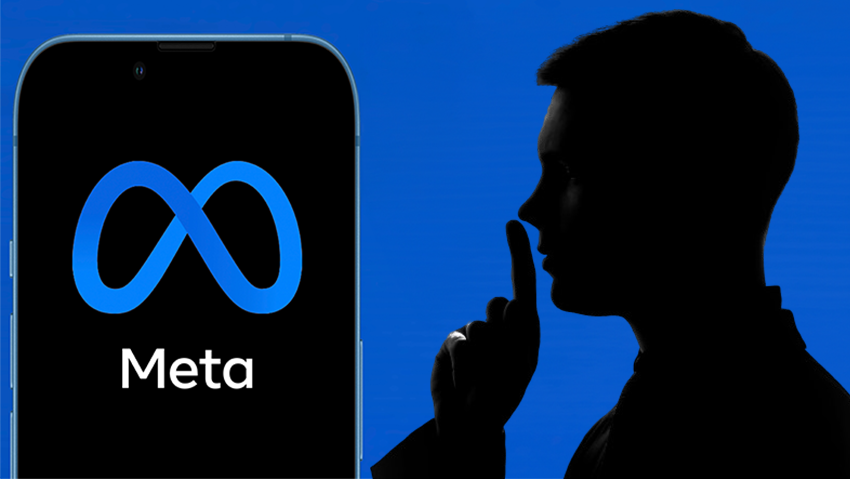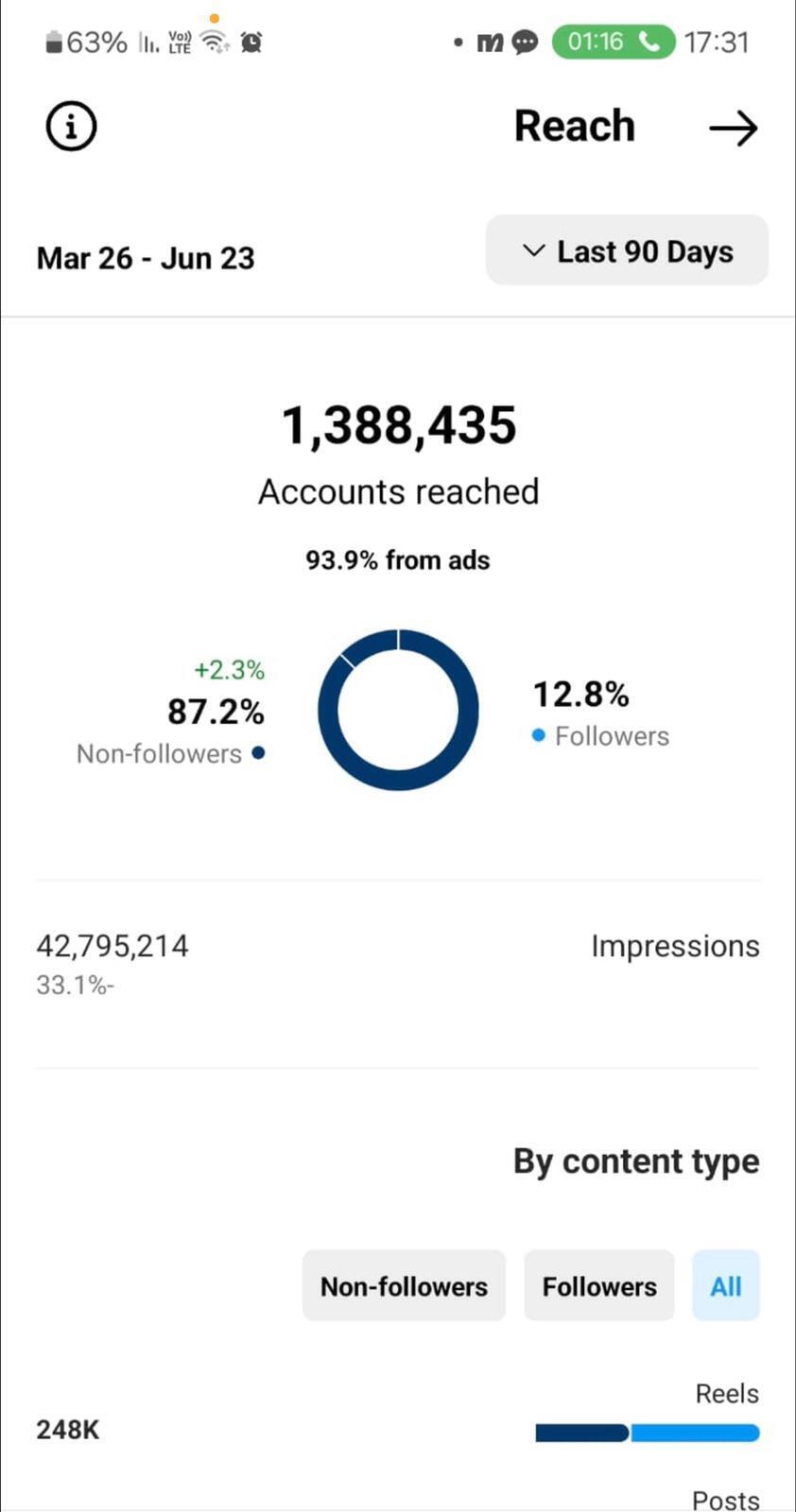Many social media platforms continue to favor pro-Palestinian content over pro-Israeli content, and the following story illustrates this well.
American influencer Vivace Maxvictor, a highly popular content creator and advocate for Israel, tried to understand why her posts supporting the release of hostages were disappearing. During a phone call with a Meta service representative, the truth was revealed: Meta does not want posts about the hostages.
"I highly recommend you write posts about your daily life," the service representative recited. "But my daily life involves advocating for the release of hostages," Vivace replied. "Are you suggesting this encourages violence?" The representative was momentarily confused before responding with a line seemingly straight out of a mafia playbook: "I wouldn't say that, but I'm offering you insights on how to make your account recommended again."
This story isn't new but shows Meta's attempt to avoid promoting content that might upset some of its users, particularly those from countries that are not fond of Zionism, to say the least. This reality of a behind-the-scenes algorithmic battle isn't well-known to many of us. We might assume that the struggle on social networks is just a matter of the number of posts and persuasive images, but we don't realize that platforms like Facebook, Instagram, WhatsApp, TikTok, and YouTube are actively participating in the Palestinian struggle by promoting pro-Palestinian messages and weakening, downgrading, or even blocking pro-Israeli messages.
Vivace is a veteran internet warrior, an American Jew of Iranian descent, who has turned the social media struggle into a campaign that allows her to reach TV viewers on major networks and spread her messages. For example, she did so in the case of Benjamin Harouni, a Jewish dentist from California who was murdered last March. The attempt to spread the news of his murder and encourage people to join the protest encountered obstacles set by Meta itself.
For instance, the hashtag #BenjaminHarouni was simply blocked on Instagram (owned by Meta), and on the day of the funeral, it was inaccessible. Vivace reports other attempts to interfere with her publications—hacker attacks on her account, blocking access by the network, preventing live sessions, and disabling ads. In contrast, pro-Palestinian supporters receive privileges.
Vivace Maxvictor's story is just one of many handled by an Israeli guy named Uri, better known by his business moniker The Magician. His profession: preventing account hacks, restoring access to locked accounts, and rescuing accounts taken over by hackers. The ease with which hostile elements can do this is unimaginable—just a few dozen complaints, and the account is locked. Against these, The Magician manages to unlock the accounts just as easily. We have our own superhero online.
"The recording of my client's call with Meta? We were in shock," he says. "It's absurd that content about the release of hostages is problematic for them. There's no incitement or fueling of violence here, just a call for the release of hostages. That's why it's so unusual." After the call was exposed and shared on Instagram, Meta officially apologized, and Vivace's account was restored. It's worth mentioning that last February, Meta had already started reducing political content on its platforms, which angered many content creators, though that was mainly about U.S. domestic issues such as the presidential elections.
The Magician" prefers to remain anonymous, but that shouldn't suggest he's shy. Rather, it's due to certain work methods and fear of hostile elements who dislike his actions. He is a veteran cyber expert, engaged in developing technologies and automations and managing thousands of identities and internet accounts on major platforms, dealing with the most sophisticated algorithms. The demand for his services is now greater than ever.
In a conversation with Ynet, he says: "Since October 7, I have been a pilgrimage site for demand from all over the world. These are people with high exposure levels, who are now engaged in advocacy for Israel, and there is a goal from the opposing side to disable them."
Among his clients are many celebrities, influencers, and singers who don't always want to be exposed. Admitting that Instagram tried to limit their account might drive away sponsors and harm their livelihood.
But The Magician says: "Any content creator from Israel or abroad, I tell them: 'If you continue to do this the wrong way, your account will be disabled.' These are very speculative matters. The service call with Meta is very unusual. In most cases, accounts are disabled, but no one from Meta will directly say the reason. They will just say you violated such and such rules."
So how do you manage to deal with this evil empire and get our rescue forces back in action?
"In the last decade, I’ve focused on cybersecurity mainly against the major platforms, and I have experience on a very large scale. We have tools we work with, we have connections within the internal departments of Instagram and Facebook, my lawyers work regularly with the lawyers of the legal departments. Of course, we don't pass envelopes under the table, but we are very much inside the system. I have resources and tools that no one else has today."
What’s the solution? How can an influencer support Israel without being blocked?
"Every media has guidelines and policies. I secure the influencers, allowing them not to be blocked because I know how to let them continue speaking, how to work with the algorithm. There could be one problematic word, but in the end, the algorithm doesn't understand context. There are very sensitive niches here because people don't deal with issues like terrorism and severe violence daily. So, if a person creates content, as charming as it may be, in these niches—if they don't have someone who knows what is allowed and what isn't, they will definitely be blocked."
It's unfair when the other side doesn't stop expressing themselves violently.
"We clearly see that there is still injustice, but it's hard to verify. The algorithm can say the content was removed because of some text and not because they are generally against Israel. I'm also not pretending to say that, but it's definitely felt."
One of The Magician's prominent clients is content creator Einav Avizemer, who recently led significant Israeli advocacy and was blocked on Instagram. "After failed attempts for several weeks, including contacting lawyers worldwide, Einav turned to us," says The Magician.
"We understood the immense importance of her Instagram account for her advocacy and business activity, and with our experience and contacts within Meta's legal department, we managed to restore the account within a few days." According to him, since this case, his company has developed a new product allowing content creators, journalists, social activists, and others whose activities are important to the public to convey their advocacy-related messages with "close support and security" from his company.
Another client, a well-known Israeli model and actress involved in Israeli advocacy efforts on Instagram, experienced significant damage to her personal Instagram account due to her advocacy content. This account serves as both an advocacy channel and a primary source of income and has suffered numerous restrictions, reduced exposure, and post removals. After contacting The Magician, he managed to remove all restrictions and restore exposure to her account, guiding her on how to write advocacy content to prevent future blocking.
Another example: A large Facebook group with hundreds of thousands of members, dealing with current and news content from Israel and the surrounding area, was recently blocked by Facebook. The official reason, according to Facebook, was the identification of some posts in the group as supporting dangerous organizations. This claim raises many questions about Facebook’s algorithm, which might mistakenly harm legitimate content and restrict freedom of expression on the social network. Given the significant harm, The Magician's legal team is working with the group's managers to find a solution with Facebook's legal department.
Will all this end one day, and you'll be out of a job?
"I'm not worried. Indeed, the digital world changes constantly, but as time goes by and technology advances, the world of social media only grows and evolves. So, I expect the activity to only expand and increase. Some platforms may not be as relevant as they are today in the future. However, a new trend will always emerge in the digital world."
Ma'ayan Sarig, Meta's VP of Communications, responded: "The claim that content raising awareness about the release of hostages is deliberately removed as part of the company's policy is a negligent lie, with no basis. It should be noted that we asked the reporter for examples of such content and were refused. The anonymous interviewee in this article may be referring to pictures and videos of the hostages produced and distributed by Hamas. Hamas is defined by the U.S. government as a terrorist organization according to the U.S. Foreign Terrorist Organizations list. Hamas is also defined as such according to our policy at Meta. This means that Hamas hostage videos are prohibited on our platforms."




